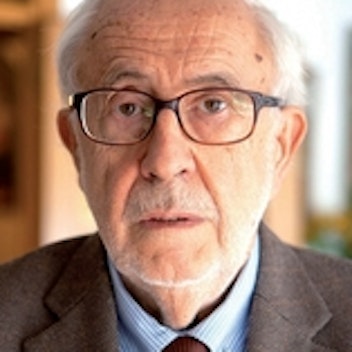
The impact of local government on more sustainable transportation in Germany
 Caroline Schulte Oestrich
Caroline Schulte Oestrich
The aim of this article is to contribute to the conversation on language as part of the spiritual Constitution, as opposed to the Constitution of the organization. My purpose is to present the linguistic constitutional model not as a positive system or order but as a proposed order, in the sense of a due paradigm from the point of view of constitutional logic. It thus consists of various determinations, characterized of course by their content, in terms of decisions on language; but also from a structural or categorical point of view which then resorts to various factors such as the reservation of status, simply constitutional law or institutional guarantee
It is actually a three-level system: there are constitutional decisions, but also statutory and autonomous ones too.
The constituent adopts certain linguistic decisions to be completed, by virtue of a statutory reservation by the statutory legislator and finally by the autonomous legislator. In linguistic matters, we have a Statute reservation en bloc and in blank, without imposing any guidelines or content, which does not release the statute from respecting other decisions of the constituent. Nor does the reservation impose on the person who receives the authorization, the exclusivity of the regulation, but only the regulation of the defining or constitutive aspects of the same: the reservation opens a space, as opposed to what happens in other cases, which is not only wider, but, so to speak, denser. Statutory regulation has obvious petrifying effects: what is regulated by the statute cannot be modified by the ordinary autonomous legislator. On the other hand, the reservation of Article 147 of the Spanish Constitution is clarified by a correct understanding of the statutory reservation of Article 3 of the Spanish Constitution.
Article 3 establishes the right to use it and the duty to know it. This clause is completed in the same precept with other statements: 1-on its status as an official language of the State 2-although it is shared in the Autonomous Communities with the other languages of Spain. 3- with the commitment to respect and protect linguistic pluralism, which also applies to Castilian.1
The clause ensuring respect for and protection of pluralism strengthens the position of Castilian. The clause providing for the co-officiality of other languages modulates it. The meaning of the clause guaranteeing the officiality of Castilian is ambiguous, as it seems to instrumentalize the right to the guarantee of its officiality.
The right to use Castilian is a constitutional right, in that sense evidently supra-legal and opposable to any authority of the State as a whole; but it is not a fundamental right, although it may be protected by one, by virtue of its location within the Preliminary Title - and of the denunciation through amparo in relation to linguistic actions that violate fundamental rights, such as equality or other rights such as freedom of expression.
The right to use Castilian is a right formulated in elementary and even equivocal terms. It seems, in this respect, to be recognized in an instrumental manner, in relation to the guarantee of its officiality, and granting powers whose determination depends on its relationship with other rights, as is the case of the right to education and freedom of expression. This structure is important: it is what prevents the vehicular condition in the teaching of Castilian from being considered entwined with the right to use it, but rather to the administration that has powers in educational matters.
It is debatable how Article 149.1.1 of the Spanish Constitution should be applied with regard to its specific nature. It seems that it does not allow for a basic development of the right to use Castilian in the sense of establishing its elementary or normal regime. Article 149.1.1 would not allow a definition of the right to use Castilian but only a regulation that would prevent the Autonomous Communities from affecting the exercise of this right in conditions of equality.
The generality of the clause establishing the duty to know Castilian is also striking. a. It reinforces the legal position of Castilian with enabling effects for the legislator who details the obligations it entails. b. It has impeditive effects for the statutory and autonomous legislator, who will not be able to contemplate the regulation of the official autonomous language in harmful terms, which would prevent the fulfilment of the duty to know Castilian. However, the duty to know Spanish cannot affect the enjoyment of other rights. c. Thus, as the Spanish Constitutional Court has pointed out, it cannot be understood in a sense that is detrimental to the faculties included in other rights, so that in the case of recourse to a Spanish interpreter, who is not fluent in Spanish, the guarantee of procedural rights is imposed on the presumption of knowledge of Spanish that would derive from the constitutional duty in this respect.
We draw attention to the fact that it is a mixed guarantee - a public institution is directly protected, but bilingualism is indirectly protected. It is an implicit guarantee - it is not directly recognized, as occurs in other cases - but with other essential references - thus what is regulated with respect to Castilian. In favor not of the ordinary legislator but of a qualified one, with a wider margin of action, the statutory legislator, with a constructive task, thinking more about the future of the institution than about the preservation of its past.
In relation to language policy, I would speak of enabling effects to pursue an active or positive policy, which would restore the position of the language of the Autonomous Community, until it becomes, if necessary, the central axis of official and social bilingualism.
But there are negative effects: as a figure with an obvious consolidating effect, the institutional guarantee of co-officiality prohibits a policy that aims at overcoming bilingualism, instead imposing the official language of the Community, somewhat improperly called by statute, the Community's own language. Such a policy would disregard the constitutional protection of bilingualism as a stable language regime through the institutional guarantee and would have to be considered incompatible with the Constitution.
Nor can the purpose of language policy be a model of territorialization that reduces the role of Castilian in the corresponding Autonomous Communities to that of a language of communication with the State authorities or of exclusive use in the singularized relations of the citizens with the Autonomous Administration.
The non-use of any of the languages in the normal functioning of the autonomous institutions or their marginalization in the public declarations (not necessarily in the sense of official) of their authorities or bodies does not seem to respect the constitutional guarantee of co-officiality.
In short, the institutional guarantee means granting legal protection - of constitutional rank no less - to non-individual holders: it is not a question of subjective rights or collective rights, but of certain components of the constitutional order to be preserved as essential characteristics of the same - not constitutionally indefectible, which are only the constitutional bodies. We are therefore dealing with objective elements, different from rights, although obviously related to them.
This article was first published on the blog of the Fundación Giménez Abad in Spanish.

This content is licensed under a Creative Commons Attribution 4.0 International license except for third-party materials or where otherwise noted.